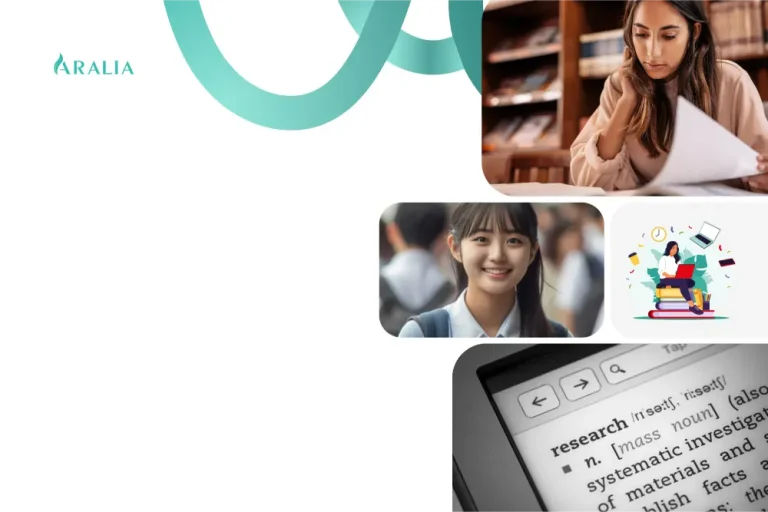LATEST UPDATE ▪️ COMPETITION INFORMATION
2026 Competition Details Released!
John Locke Essay Competition
John Locke Institute Essay Competition is hosted by John Locke Institute, an independent educational organization located in Oxford, UK. Professors at the John Locke Institute are from famous universities like Oxford, Princeton, Brown, and Buckingham University.
Interested in the competition?

Competition Overview
Must be 18 years old, or younger
Eligibility
Free
Entry fee
February 2, 2026 - March 31, 2026
Registration Timeline
April 1, 2026 - May 31, 2026
Submission Timeline
June 7, 2026 (estimated)
Late Entry Deadline (7 day extension)
June 21, 2026
Late Entry Deadline (21-day extension)
July 7, 2026
Notification of Short-listed Essayists
October 3, 2026
Awards Dinner
October 2-4, 2026
Academic Conference
📌 Note: Aralia is not the organizer of this competition. For official rules, deadlines, and updates, please refer directly to the competition organizer. Aralia provides listings and information about competitions for student reference. Aralia is an online education platform offering competition preparation classes to students worldwide.
Competition Details
1. Eligibility
Students from all countries and schools can participate. The competition has two levels: one for high school students 18 years old and younger, and the Junior Prize, focused on middle school students 14 years old and younger.
2. Subject categories
There are 10 subject categories (excluding Junior Category): Philosophy, Politics, Economics, History, Psychology, Theology, Law, Public Policy, Science & Technology, and International Relations (new for 2026!). Each essay must address only one of the questions in your chosen subject category, not exceeding 2000 words (not counting diagrams, tables of data, footnotes, bibliography, or authorship declaration).
Note: Junior contestants may answer any question from any category, and will be judged separately, against their age peers, within each category.
3. Results
Shortlisted essays will be notified by July 31 and receive an invitation to Oxford for an academic conference and awards dinner in September, where the prize-winners will be announced. The dinner is completely optional.
4. Prizes (in USD)
Winners of the subject categories will receive a $5000 scholarship for attending any John Locke Institute program.
The second-place winner will receive a $2000 scholarship, and the third-place winner will receive a $1000 scholarship.
The winner of the best essay overall will be awarded an honorary John Locke Institute Junior Fellowship, which comes with a $10,000 scholarship to attend one or more of John Locke’s summer schools and/or visiting scholars programmes.
Senior and Junior entries are judged separately, meaning each category awards six prizes total.
How to Win the John Locke Essay Competition?
Take the time to understand the essay prompt and what the question is asking for. Students could approach questions in several ways, but it should always link to John Locke’s philosophy.
Once you decide on your stance about the question, it’s important to present your argument with logical reasoning and strong evidence from reputable sources. Students can utilize a variety of reputable sources, including academic journals, books, and scholarly articles, to gather relevant information and develop a well-informed argument.
In addition to providing reasoning and evidence that support students’ arguments, students can also examine alternative perspectives to show that they have the ability to evaluate evidence critically– specifically the strengths and weaknesses of different viewpoints.
Competition Questions
1. Philosophy
Q1. Is it ever wrong to do the right thing for the wrong reasons?
Q2. What consolations does philosophy offer?
Q3. Why is incest wrong?
2. Politics
Q1. Is the right to self-determination absolute?
Q2. Did the pandemic normalise authoritarianism?
Q3. Is democracy in crisis?
3. Economics
Q1. Should we fear a cashless society?
Q2. Technology now allows personalised pricing. If this came to be widely used, what effects should we expect?
Q3. Did Jeff Bezos get rich at the expense of his customers, his employees, neither or both?
4. History
Q1. “The arc of the moral universe is long, but it bends toward justice.” Is it? Does it?
Q2. What might the world look like if the Library of Alexandria didn’t burn down?
Q3. Does Che deserve his iconic T-shirt?
5. Psychology
Q1. Why do we care what happens to our body after death?
Q2. Is mental illness over-diagnosed now, or just better recognised?
Q3. Surveys show a widening gender ideological gap in recent years. Why?
6. Theology
Q1. Is religious experience better explained by neuroscience or by theology?
Q2. Research shows a strong inverse correlation between religiosity and per-capita spending on education. Does one cause the other?
Q3. If you achieve enlightenment, how will you know?
7. Law
Q1. If legislators and judges all accepted the philosophical theory of determinism, what would be the effect on criminal sentencing?
Q2. To what extent should criminal sentencing take into account the effect on the perpetrator’s family?
Q3. Is trial by jury obsolete?
8. Pubic Policy
Q1. What discount rate should be applied to long-run environmental policies? Why?
Q2. Which unintended consequence was most devastating and why did we fail to predict it?
Q3. Should vaccination be mandatory in a public health emergency?
9. International Relations
Q1. Does foreign aid help or hurt poor people?
Q2. Is the US economy harmed by cheap imports from China?
Q3. Should a coalition of countries (or of billionaires) run an experiment with a libertarian microstate?
10. Science & Technology
Q1. Is free speech the enemy of science?
Q2. Is space exploration a necessity or an indulgence?
Q3. Should we be polite to ChatGPT?
John Locke Essay Competition Past Winning Essays
Submission Details
1. Word Limit
2000 words (not counting diagrams, tables of data, endnotes, bibliography or authorship declaration)
2. Filename format
FirstName-LastName-Category-QuestionNumber.pdf
Example: John-Doe-Psychology-1.pdf
3. Academic Reference
Each candidate will be required to provide the email address of an academic referee who is familiar with the candidate’s written academic work. This should be a school teacher, if possible, or another responsible adult who is not a relation of the candidate. The John Locke Institute will email referees to verify that the essays submitted are indeed the original work of the candidates.
Class Recommendation
Prepare to compete at the highest level






